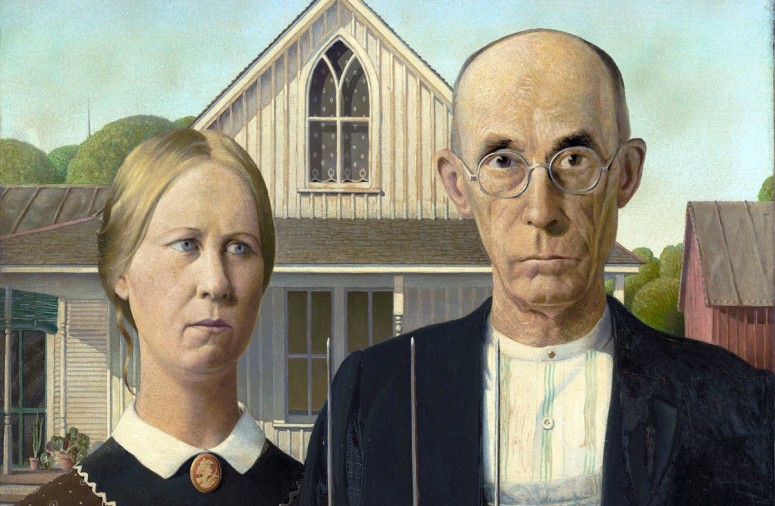Easy peasy: 5 ways to rewire your brain for happiness

Grant Wood/Wikimedia Commons
As a leading psychologist, Shawn Achor has spent two decades studying happiness. His bona fides include award-winning researcher and teacher at Harvard, best-selling author on positivity, and popular TED lecturer.
So when he speaks you should listen. For instance, Achor asserts our circumstances — including age, race, gender, social status, and wealth — only account for 10% of our happiness. The rest is determined by our genetic baseline for happiness (i.e. optimist vs pessimist) and our individual intentions, including the way we spend our time and the things we ponder.
Obviously, happiness means different things to different people. But there are plenty of standardized things we can do to boost our chances of finding it. Somethings such as knowing oneself, learning how to forgive, and balancing the personal, professional, and social demands on our time can be life-long pursuits.
But other happiness-building attributes are quite easy, Achor argues. In order from least difficult to most difficult, they are as follows: Continue reading…

 While considering a TV upgrade, Lindsey and I were price checking a nearby retailer yesterday. Thankfully for us, the outfit was showing a kids movie, so parents could shop around.
While considering a TV upgrade, Lindsey and I were price checking a nearby retailer yesterday. Thankfully for us, the outfit was showing a kids movie, so parents could shop around.